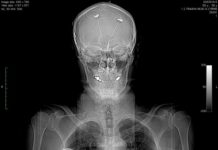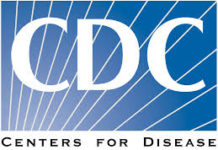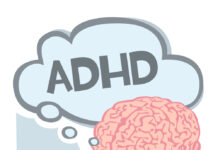Relieving Poverty Significantly Improves Mental Health
Giving money to people diagnosed with severe mental health issues can significantly improve depression and anxiety. A new study, published in the October issue of the Journal of Community Mental Health, found that giving about $73 US dollars per month for recreational spending can also reduce social isolation and strengthen a sense of self.
Adverse Effects: The Perils of Deep Brain Stimulation for Depression
Hundreds of people have been given remote control deep brain stimulation implants for psychiatric disorders such as depression, OCD and Tourette’s. Yet DBS specialists still have no clue about its mechanisms of action and research suggests its hefty health and safety risks far outweigh benefits.
Transcranial Magnetic Stimulation No Better Than Placebo for Treatment-Resistant Depression
A new study in JAMA Psychiatry found that transcranial magnetic stimulation was no better than placebo for treatment-resistant depression.
Suicide Rates Rise While Antidepressant Use Climbs
Multiple media sources are reporting on new data from the CDC revealing a substantial increase in the suicide rate in the United States between 1999...
Study Finds Hearing Voices Groups Improve Social and Emotional Wellbeing
Hearing Voices Network self-help groups are an important resource for coping with voice hearing, study finds.
Antidepressants Do Not Prevent Suicides, May Increase Risk
When the CDC released data revealing an increasing suicide rate in the US, some experts, speaking to major media outlets, speculated that the increase...
Is Long-term Use of Benzodiazepines a Risk for Cancer?
A large study of the population in Taiwan reveals that long-term use of benzodiazepine drugs, commonly prescribed for anxiety, significantly increases the risk for brain, colorectal, and lung cancers. The research, published open-access in the journal Medicine, also identifies the types of benzodiazepines that carry the greatest cancer risk.
New Book Deconstructs Ideology of Cognitive Therapy
CBT forwards a hyper-rational perspective of human suffering that complements a managerialist culture of efficiency and institutionalization in the Western world.
New Study Concludes that Antidepressants are “Largely Ineffective and Potentially Harmful”
A new study published in Frontiers in Psychiatry concludes that “antidepressants are largely ineffective and potentially harmful.”
Long-term Usage of ADHD Drugs Linked to Growth Suppression
Findings suggest that treatment not only fails to reduce the severity of “ADHD” symptoms in adulthood but is associated with decreased height.
The Conflicts That Result From Globalizing Euro-American Psychology in India
Researchers examine the transformation of work, life, and identity in India as a result of Western corporate and psychological culture.
Researchers Test Harms and Benefits of Long Term Antipsychotic Use
Researchers from the City College of New York and Columbia University published a study this month testing the hypothesis that people diagnosed with schizophrenia treated long-term with antipsychotic drugs have worse outcomes than patients with no exposure to these drugs. They concluded that there is not a sufficient evidence base for the standard practice of long-term use of antipsychotic medications.
New Study Investigates Negative Side Effects of Therapy
Researchers find that nearly half of cognitive behavioral therapy (CBT) patients experience treatment side effects.
What Does Social Justice Really Mean for Psychologists?
Without clarity and consensus around what social justice means, psychologists risk perpetuating injustices that undermine their stated mission.
Psychotherapy is Less Effective and Less Accessible for Those in Poverty
A special issue explores the connection between poverty, mental health, and psychotherapy.
Antidepressant Use Leads to Worse Long Term Outcomes, Study Finds
Results from a 30-year prospective study demonstrated worse outcomes for people who took antidepressants, even after controlling for gender, education level, marriage, baseline severity, other affective disorders, suicidality, and family history of depression.
The ADHD Drug Abuse Crisis on College Campuses
The abuse of ADHD drugs on college campuses has reached epidemic proportions, according to the authors of a recent review in the journal of Ethical Human Psychology and Psychiatry. ADHD drugs, like Ritalin and Adderall, have become so commonplace on college campuses that students abusing these drugs for studying, weight loss and partying have underestimated their risks. As a result, we have seen exponential increases in emergency room visits, overdoses, and suicides by students taking these drugs.
NIMH Info for Parents on “ADHD” Misleading, Researchers Say
A new analysis of the information that the National Institute of Mental Health (NIMH) publishes for parents about attention deficit hyperactivity disorder (ADHD) concludes that the children’s experiences and contexts are ignored and that medication is presented, misleadingly, as the only solution supported by research evidence.
Large German Anti-Stigma Campaign Shows Little Effect on Attitudes
“Overall, this study showed that the information and awareness campaign had almost no significant effects on the general public's attitudes toward people affected by either schizophrenia or depression,” the researchers, led by German medical sociologist Anna Makowski, wrote. “One could assume that deeply rooted convictions cannot be modified by rather time-limited and general activities targeted at the public.”
Textbooks Provide Misleading Information on the Neurobiology of ADHD
When it comes to ADHD, some researchers suggest that medical textbooks provide inaccurate and misleading information.
Lancet Psychiatry’s Controversial ADHD Study: Errors, Criticism, and Responses
Amid calls for a retraction, Lancet Psychiatry publishes articles criticizing the original finding and a response from the authors.
Researchers Expose Pharmaceutical Industry Misconduct and Corruption
Corruption of pharmaceutical industry sponsored clinical trials identified as a “major obstacle” facing evidence-based medicine.
Rigorous Study Finds Antidepressants Worsen Long-Term Outcomes
A new study conducted by Jeffrey Vittengl at Truman University has found that taking antidepressant medications resulted in more severe depression symptoms after nine years.
Psychotherapy Effectiveness for Depression Inflated by Publication Bias
While publication bias has been known to overestimate the efficacy of antidepressant treatments, a new study suggests that research on the use of psychotherapy in depression suffers from a similar bias.
Fighting for the Meaning of Madness: An Interview with Dr. John Read
Akansha Vaswani interviews Dr. John Read about the influences on his work and his research on madness, psychosis, and the mental health industry.



























